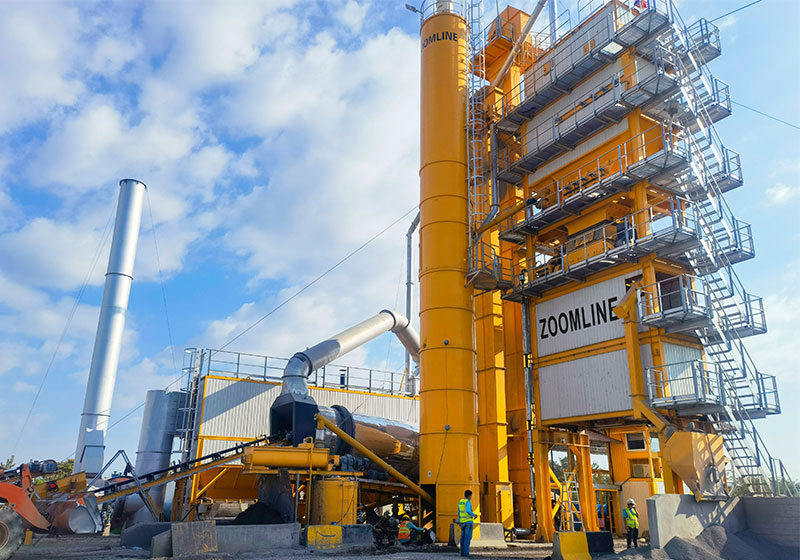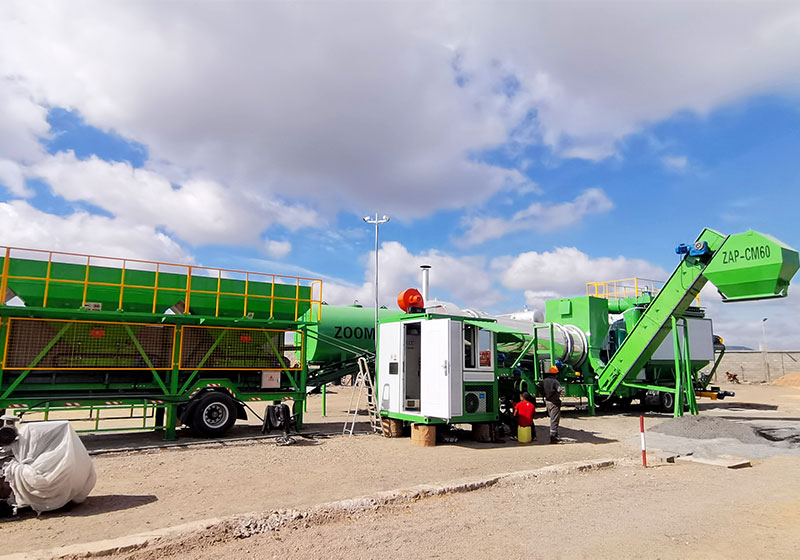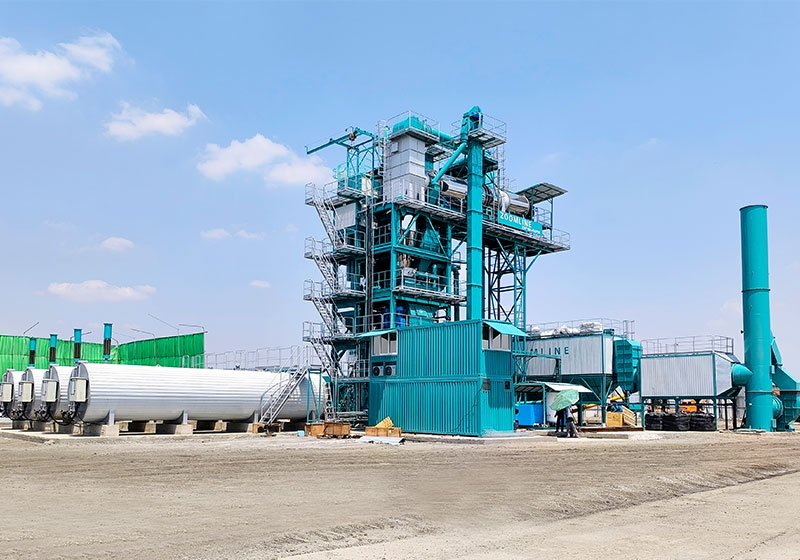In the realm of modern infrastructure development, asphalt mixing plants are indispensable for constructing durable and reliable roads. These sophisticated facilities are responsible for producing high-quality asphalt concrete, which serves as the foundation for highways, airports, parking lots, and various other projects. With the increasing demand for efficient, eco-friendly, and cost-effective construction methods, understanding the functions and importance of asphalt mixing plants is essential for industry professionals. This article provides an in-depth look into what asphalt mixing plants are, their key functions, and their vital role in today’s construction landscape.
An asphalt mixing plant, also known as an asphalt plant or asphalt batch plant, is an industrial equipment designed to manufacture asphalt concrete by blending aggregates, sand, filler, and bitumen at controlled temperatures. The primary goal is to produce a consistent and high-quality asphalt mixture suitable for paving.
There are two main types of asphalt mixing plants:
Batch mixing plants: They batch, heat, and mix materials, offering high flexibility and suitable for small-batch, multi-specification production, with precise quality control.
Continuous mixing plants: Aggregate heating and asphalt mixing are performed simultaneously and continuously, resulting in high production efficiency. They are suitable for large-scale, single-specification production, such as highway mainline construction.

Key components of an asphalt mixing plant include cold feed bins (for raw material storage), drying drums (to heat aggregates), mixing units (to blend materials), and storage silos (for finished asphalt). Each part plays a vital role in ensuring efficient and high-quality production.

Producing High-Quality Asphalt Mix
The primary function of an asphalt mixing plant is to produce asphalt that meets strict quality standards. The plant combines aggregates, sand, fillers, and bitumen in precise proportions, ensuring the resulting mixture has the right consistency, temperature, and strength. Consistent quality is critical to ensure the longevity and durability of the road surface.
Supplying Asphalt for Road Construction and Infrastructure Projects
Asphalt produced in these plants is essential for laying road surfaces, urban streets, and highways. The production process allows for customizable asphalt mixes suitable for different traffic loads, climatic conditions, and subsoil types, ensuring versatile application across diverse projects.
Recycling Old Asphalt Materials (RAP)

Modern asphalt mixing plants integrate Reclaimed Asphalt Pavement (RAP) technology. This process involves crushing and heating old asphalt from previous road surfacing, then blending it with new materials. Recycling asphalt reduces environmental impact and lowers project costs by minimizing the need for raw materials.
Temperature Control and Uniform Mixing
Proper temperature management is critical in asphalt production. Heating aggregates and bitumen to the correct temperatures ensures proper adhesion and a homogeneous mixture. The plant’s temperature control systems help produce asphalt with optimal properties, improving pavement performance and lifespan.
The production process begins with raw materials — aggregates, sand, and fillers — being stored in cold feed bins. These materials are then conveyed into a drying drum, where they are heated and dried. The heated aggregates are weighed and blended with the bitumen, which is heated to a suitable temperature.
The mixing process occurs in a specialized drum or mixer, thoroughly blending all components to achieve a consistent mixture. Continuous quality control checks ensure the mixture meets the required specifications before it is discharged into transport trucks and delivered to construction sites.
High Efficiency and Capacity: Modern asphalt plants can produce hundreds of tons of asphalt daily, accelerating project timelines and meeting large-scale demands.
Consistent Quality and Reliability: Precise control over material proportions, temperature, and mixing ensures uniform asphalt quality, reducing repair and maintenance costs in the future.
Flexibility and Variety: Asphalt plants can produce various asphalt types, including dense-graded mixes, open-graded mixes, and specialty mixes for diverse pavement needs.
Environmental Detection and Recycling: Equipped with advanced emission control systems, many plants also support RAP integration, making asphalt production more eco-friendly.
Apart from highway construction, asphalt plants are vital in:
Airport runway building
Urban street resurfacing
Parking lot paving
Rural road development
Major infrastructure projects requiring durable pavements
Selecting an appropriate asphalt mixing plant depends on various factors such as:
Required production capacity
Mobility (stationary vs. portable units)
Technological features (e.g., eco-friendly emission controls, automation)
Budget and operational costs
Specific project requirements and climate conditions
Custom configurations can optimize plant performance, and ongoing maintenance ensures long-term productivity and efficiency.
Understanding the functions of an asphalt mixing plant reveals its critical role in modern construction and infrastructure development. From producing high-quality asphalt to enabling sustainable practices through recycling, these plants are essential for building durable roads and surfaces.